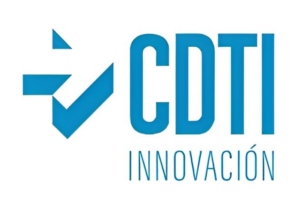Research on technologies and architectures for autonomous vehicles
The goal of the Robust, Reliable and Resilient Connected and Automated Vehicle for people transport (R3CAV) project is to develop new connected technologies, as well as to design a new architecture, which with both hardware and software, can adapt to future connected autonomous vehicles. This architecture is capable of working at different levels of autonomy, from advanced predictive driving assistance systems to fully autonomous driverless systems.
Sigma Cognition will design and develop a system to capture, prepare, annotate and process data from heterogeneous sources following specific security and privacy protocols. This includes researching and developing methods for data augmentation from various sources to increase quality and augment the availability of synthetic data, establishing methods for improvement and evaluation of datasets.
We will partner with Tecnalia, a Spanish research institute, for subject matter expertise on the interfaces and API’s relevant to autonomous vehicles as we design, develop and validate an architecture that guarantees the integration of data from the perception, location and detection of the environment systems for decision making. The project culminates with the development and validation of new AI algorithms for autonomous navigation and robust, comfortable and safe decision-making for automated vehicles.
The 27-month R3CAV project runs from June 2021 to December 2023.
The project has focused its activity on the implementation of technologies and components needed to implement the two pilots:
Sigma Cognition has been working on the requirements definition for both pilots, a complete simulation environment has been designed and is quite well advanced for both pilots. We have started work on synthesized data to enrich the possible scenarios that may be encountered in real life, such as specific weather or traffic conditions.
We have been working on the CARLA simulation environments of the two pilot sites taken into account in the project: the Palencia Renault Factory plant and a urban circuit in the Alcobendas defined by ALSA.
With the latter simulation environments, Sigma are generating datasets used for the implementation of AI algorithms and models used for the autonomous driving Software actually running on the vehicles to be used in the pilots. Some of the produced datasets in the form of videos.
This project received funds from the Sustainable Automotive Technological Programme (PTAS) 2021 of the Spanish Centre for Technological Development and Innovation (CDTI) of the Ministry of Science and Innovation, under project Nº PTAS-20211009.
![]()
![]()

![]()
The Renault Group, ALSA, GMV, Indra, MásMóvil and Masermic. The project includes collaboration with four universities (UPM, UC3M, UMU and UMH) and three technology centers (TECNALIA, CTAG and TEKNIKER).
Bring us your toughest challenges and ambitious ideas — we’re excited to bring them to life.